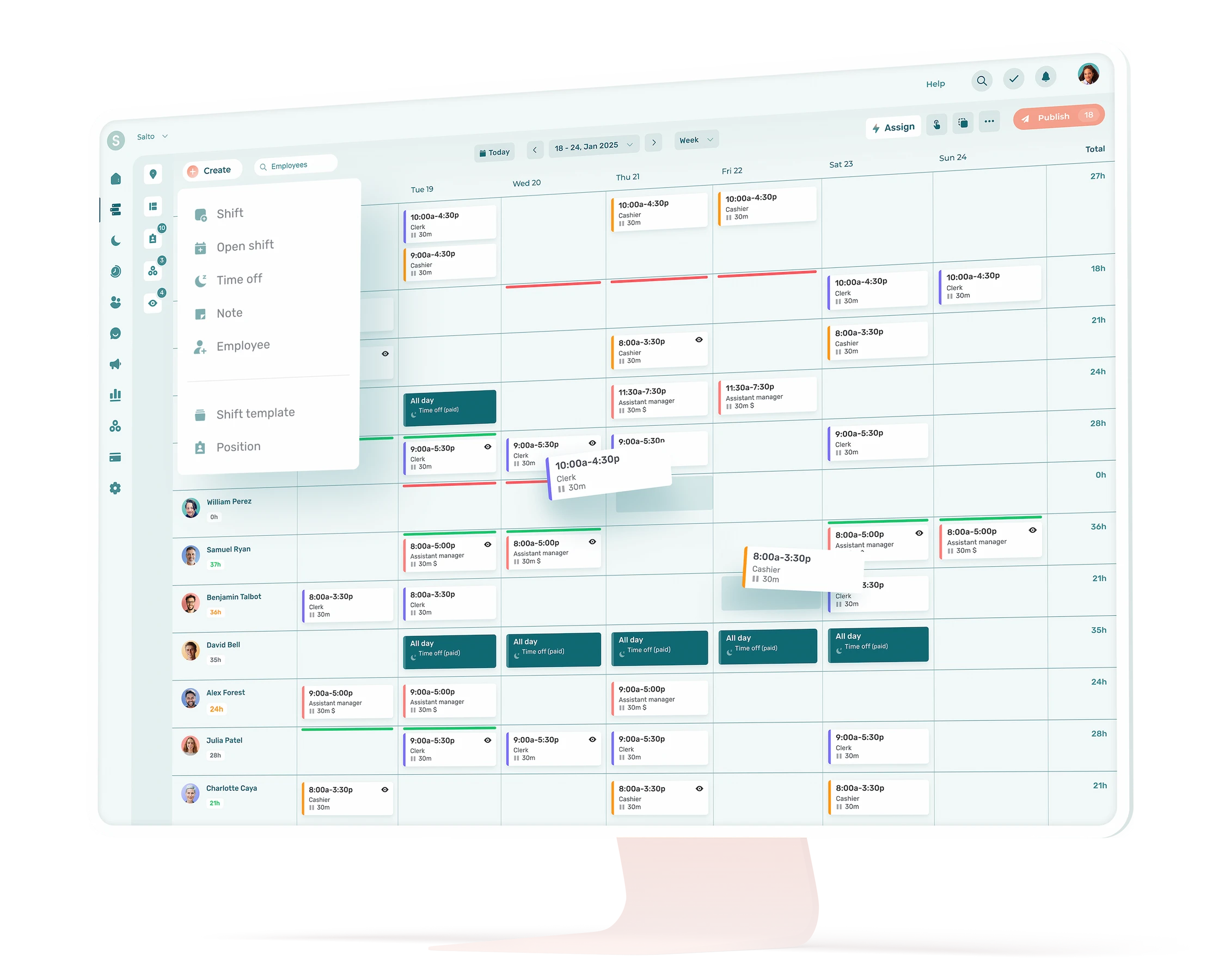Do you always say thank you and good work to your employees? Do you give positive feedback on a daily basis? What if I told you your feedback might not be helping much…
There’s nothing wrong with singing your employees’ praises, but it won’t automatically make them grow or promote their engagement. Shocking, isn’t it?
If you want tangible results, positive feedback must be used effectively.
What Is Feedback?
Feedback is information shared with an employee regarding their actions or performance. Its purpose is to help them develop and improve.
Telling an employee that they haven’t done their job properly and that they need to do it over, without providing details, is therefore not feedback.
Positive feedback emphasizes strengths. The goal is to highlight a person’s good work so that they will repeat it and feel valued. Positive feedback reinforces a behaviour.
When Should I Give Positive Feedback?
Here are some situations that are ideal for positive feedback.
When an Employee:
- Exceeds targets;
- Steps outside their comfort zone;
- Gives an especially appreciated helping hand;
- Overcomes a challenge;
- Demonstrates initiative;
- Needs a little motivation;
- Leads by example;
- Improves an aspect of their work; or
- Does something noteworthy.
A Driver of Motivation and Engagement
Positive feedback plays an important role in employee engagement. It also has a positive impact on a company’s productivity, retention rate and profitability.
Importantly, according to a University of Minnesota study, an employee will react about 6 times more strongly to a negative interaction with their supervisor than to a positive one.
The authors explain that negative feedback can have significant negative impacts on employee well-being and productivity. Inevitably, the more negative an employee feels about their job, the more they disengage.
Positive feedback is a real driver of motivation and engagement.
So don’t wait until your employee’s annual performance evaluation to give positive feedback. It should be a daily occurrence.
When an employee does something well, take a few minutes to highlight it. Don’t wait too long, or else the feedback will lose its impact.
When you recognize employees’ work and value, they will be happier at work and thrive professionally.
But Don’t Overdo It
When a manager thanks their employees constantly regardless of the circumstances, it tends to have two perverse effects: It trivializes real successes, and gives the impression that you aren’t sincere or authentic.
Make sure that your feedback is genuine and will really benefit your employees. Don’t go around thanking them for everything under the sun.
A Way of Boosting Skill Development
If you want to encourage your employees in their professional development, positive feedback is a highly effective tool.
Unlike negative feedback, which seeks to correct behaviour, positive feedback encourages the employee to repeat an action or behaviour.
However, it must be used effectively to have a concrete impact.
If you simply say to your employees, “Good job, well done,” they will probably be flattered, but won’t get anything really tangible out of it.
Be Specific
Don’t be afraid to be specific. According to Officevibe, 17% of employees feel that the feedback they receive isn’t specific enough.
For example, imagine that an employee just answered an angry customer and managed to calm him down. The customer even left satisfied. Emphasize your employee’s success: She stayed cool and collected, listened to the customer, showed empathy, was proactive in finding a solution, etc.
She will not only feel valued, but seek to repeat her behaviour.
When you concretely explain to your employees what they did well, you help them develop a better understanding of what defines excellence.
Don’t Say:
- I don’t know what you did, but kudos, it worked.
- Do the exact same thing again next time.
- Well done, keep it up.
Instead, Say:
- I think you do a really good job when you […], because it shows that […].
- When you […], it really helps the entire team succeed and it makes it so that […].
- I really appreciate how you […].
Knowing that giving positive feedback isn’t just a matter of blindly complimenting employees, you will be better able to value their work.
Apply these tips on a daily basis and see for yourself the positive impact they will have on your team!









